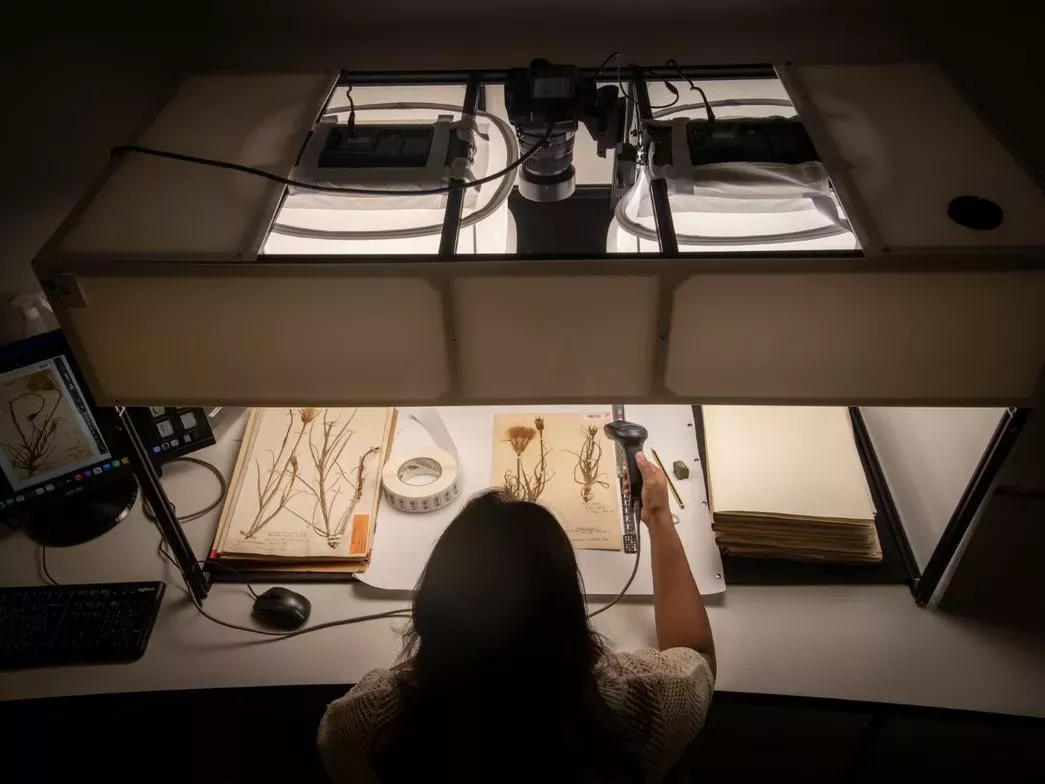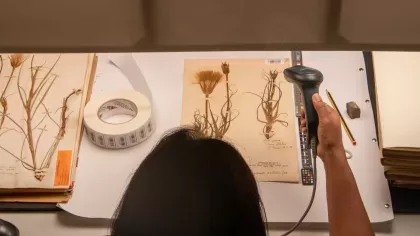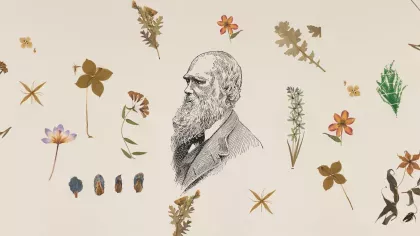Digitising Kew's Collections
Taking Kew's eight million Herbarium and Fungarium specimens online for everyone across the globe to access, helping accelerate research into global issues.

You can now immortalise a piece of botanic history. Donate to digitise a plant today and help us unlock nature's secrets.

We're embarking on our most ambitious project to date, a groundbreaking endeavour to digitise over eight million plants and fungi specimens, making our entire collection freely available to all around the world.
Shaping the future of our planet
Our specimens underpin research into our greatest global challenges, helping protect the future of our planet. Making these specimens available online will allow many more scientists to access them, ultimately accelerating research to help:
- Combat climate change
- Save species from extinction
- Feed our future, sustainably
- Future-proof agriculture
- Discover better medicines
- Protect critical ecosystems
What is most exciting is that researchers are already actively using our digitised collections to tackle some of the biggest challenges facing our planet today. With this in mind, the impact of unlocking our entire collection will be immense.
- Dr Paul Kersey, Deputy Director of Science and Project SRO

What's currently accessible?
As of July 2024, you can now access the following number of specimens via GBIF and our Data Portal:
- GBIF - 2.93 million specimens available (including herbarium and fungarium collections)
- Data Portal - 2.88 million specimens available (including herbarium and fungarium collections)
How can you get involved?
Unlocking this treasure trove of data that dates back hundreds of years holds untold application and promise, but there's still a long way to go. Completing this project relies on donations and people. See the options we have below for you to get involved.
Help us digitise our prestigious collections
Get involved with these new opportunities
%20(1).jpg1da2.webp)
Volunteer
Become part of Kew's ambitious project and help make one of the largest collections in the world freely accessible to everyone around the world.
%20(1).jpgcea8.webp)
Donate
Donate today and immortalise a piece of botanic history that can aid research into urgent global challenges - helping protect our planet for future generations.
%20(1).jpg5405.webp)
Join
See what job opportunities are available to digitise our collection and play a part in helping scientists across the world access our invaluable specimens.
.pngb8de.webp)


%20(1).png0962.webp)

.png2082.webp)